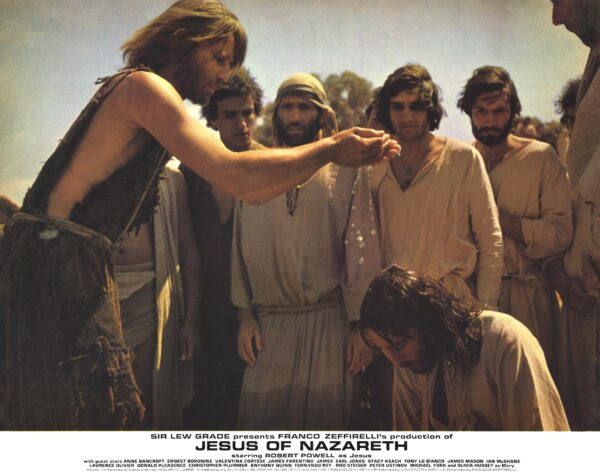
By Susan D. Harris – Published in American Thinker on Good Friday 2025
The life of a Christian is a life lived in tandem with the life of Christ. Each year we turn the pages on our Gregorian calendars and mark the days that roughly represent events that happened over 2000 years ago: We get straw in our sandals as we creep into a stable to glimpse the baby Jesus, we fall to our knees on a windswept hill as we look upon his crucified body, we run from an empty tomb shouting, “Hey! Everybody! He’s risen!”
Every year brings fresh insights into these events, prompting deeper contemplation and reflection. Sometimes it’s just an “I never thought of it that way” moment; other times it’s a life-changing revelation.
With that in mind, here are some Good Friday thoughts to ponder.
Murder Most Foul
If you’re over 40, you’ve likely seen many cinematic recreations of the crucifixion of Jesus Christ. We know it was extremely violent and bloody. But one year it struck me differently: Jesus was a strong, healthy young man. His body didn’t break down from wear and tear, accidental injury, age, or disease – it was destroyed by human hands. There really isn’t anything more egregious or shocking than the intentional destruction of a healthy, living thing – let alone something as precious as a human life. So when you think about a modern culture where many folks watch fictional beatings and murders by the thousands – solely for entertainment purposes on their televisions and phones – it’s chilling. While it’s not real-world violence, today’s tens of thousands of simulated murders would have surely been enough to satiate the appetite of Roman Emperor Caligula. It’s worth considering how constant exposure to such depravity affects the modern mind.
Obsessed with the blood
And old Christian hymn asks, “Are you washed in the blood of the lamb?”
It’s usually around Good Friday when inquisitive people ask, “Why are Christians so obsessed with talking about Jesus’ blood?”
While there is no graphic, forensic description of how much Jesus bled as he was being pummeled and pierced, scientists and historians agree it was likely significant. In fact, they believe his blood loss was so severe that he was probably in some state of shock before he was nailed to the cross.
Most Christians know that the focus on blood derives from Jesus’ crucifixion as an atoning sacrifice, where his blood is shed to forgive humanity’s sins, drawing on Jewish traditions of blood sacrifices in the Hebrew Bible (e.g., Leviticus 17:11).
However, the fact that the word “blood” appears 447 times in the King James Version gives one a lot more to reflect on.
The first mention of blood comes from God himself when addressing Cain, who had just killed his brother Abel. God asks Cain, “What have you done? The voice of your brother’s blood is crying to me from the ground.” That’s a loaded sentence that informs us that spilt blood communicates directly with God.
During the Last Supper, Jesus describes the wine as “my blood of the covenant” linking his death to a new covenant between God and humanity. Early Christians interpreted this within the context of Passover imagery, seeing Jesus as the ultimate sacrificial lamb.
The bible’s final reference to “blood” in Revelation 19:13 refers to Jesus as wearing “a robe dipped in blood.” Clearly, the blood of Jesus is something he will wear into eternity.
The Suffering and the Darkness
While there are several details of the crucifixion that are only mentioned in a single gospel account, three of the gospels – Matthew, Mark and Luke – tell us that while Jesus was on the cross, “there was darkness over the whole land.”
Oddly, while there’s no confusion over the timing of the darkness, there is some confusion over how long Jesus hung on the cross; which may ultimately be a case of expecting modern scientific precision from an ancient people who had no clocks.
The gospel of Mark tells us Jesus was crucified at the “third hour” – In ancient Jewish timekeeping, that would have been about 9 a.m. The gospel of John puts Jesus being sent away for crucifixion at the “sixth hour,” or noon, whereas Matthew and Luke don’t mention a specific time. Further, the gospels of Mark and Luke are clear that Jesus died at the “ninth hour” or 3 p.m., which would mean he was on the cross for six hours. By the ninth hour we find Jesus in extremis, yet clear-headed enough to speak clearly and loudly before breathing his last as the darkness ends.
So what caused the darkness? A solar eclipse has been ruled out because the moon was full at Passover. Scholars have suggested everything from dust storms to heavy cloud cover, but the truth is nobody really knows. The darkness at Jesus’ crucifixion remains a mystery with no single explanation fully satisfying both biblical and historical data. It’s safe to say that most Christians consider it a supernatural event.
The Words of Christ in Red
I always liked the bibles that had the words of Christ printed in red. Many bibles today don’t do that, and I think it’s too bad. The main argument for removing the red font is that readers might favor Jesus words over the rest of the bible, which just seems like micromanaging.
One day during the pandemic, I printed out a pile of papers containing Jesus’ “Sermon on the Mount” using large, red font. I walked around a drug-infested town handing them out as I talked and prayed with people who felt isolated and scared. “These are actually the words of Jesus!” I would say excitedly. I was surprised that every single person eagerly took the paper and started reading it. Some asked me if they were really Jesus own words – as if they doubted that they could be found anywhere.
I also find it amazing that we still have the words Jesus spoke as he was dying. The seven sayings of Jesus on the cross, as recorded across the four Gospels, are traditionally recognized as follows:
- “Father, forgive them, for they do not know what they are doing. “
- “Truly I tell you, today you will be with me in paradise.”
- “Woman, here is your son … Here is your mother.”
- “My God, my God, why have you forsaken me?”
- “I am thirsty.”
- “It is finished.”
- “Father, into your hands I commit my spirit.”
As the years go by, it may seem like we’ve exhausted all the bible stories, with nothing new to ponder, nothing new to refresh our faith. Yet, this couldn’t be further from the truth – There’s always a new mystery to unravel, a truth to be learned, a comfort to be felt.
We may not understand it all, but the bible tells us we will someday:
“For now we see only a reflection as in a mirror; then we shall see face to face. Now I know in part; then I shall know fully, even as I am fully known.”
Originally published at American Thinker: The Christian life in tandem with Christ: Good Friday -https://www.americanthinker.com/blog/2025/04/the_christian_life_in_tandem_with_christ_good_friday.html American Thinker





